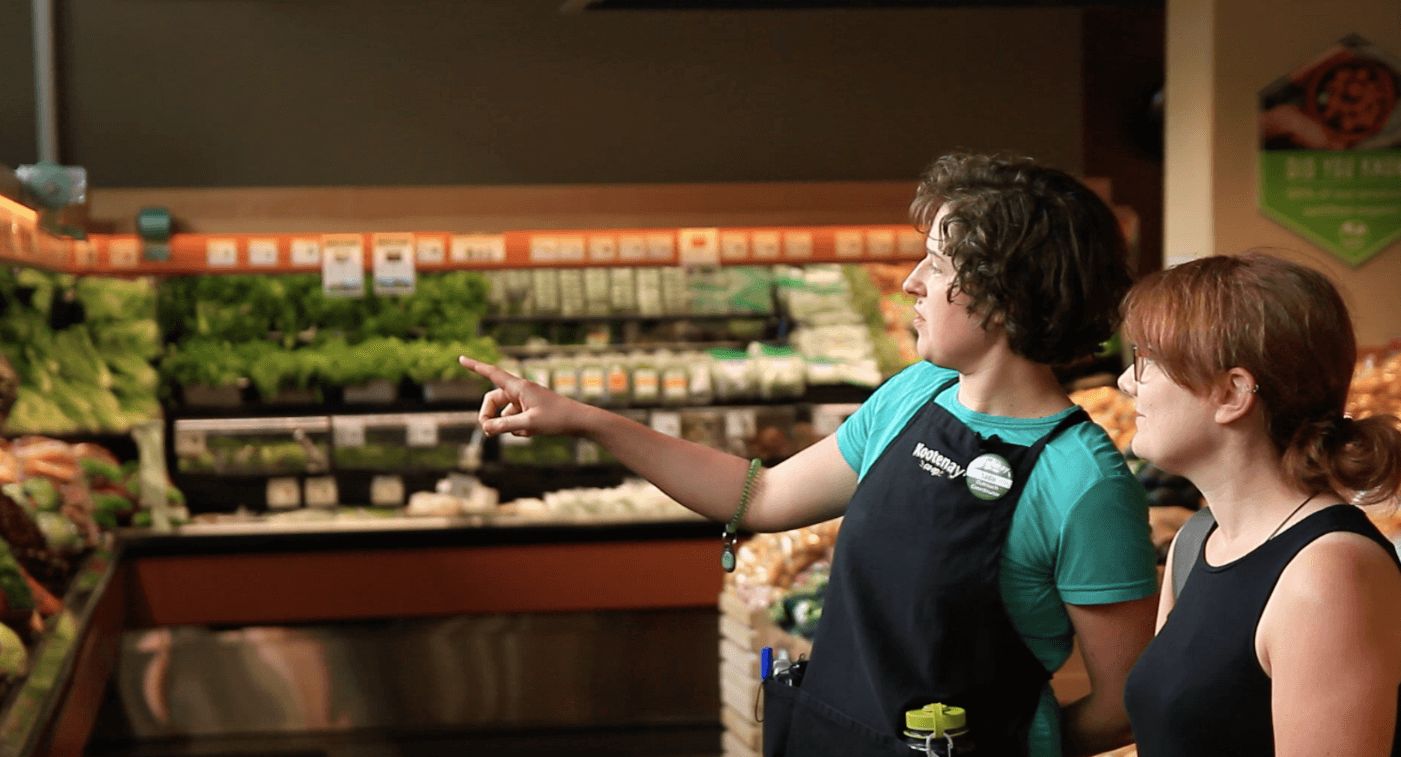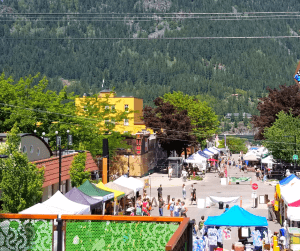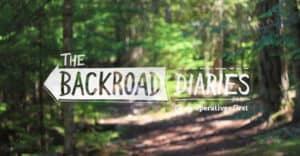When we started thinking about communities we wanted to visit for The Backroad Diaries, one stood out as a can’t-miss: Nelson, British Columbia. This town of 10,000 is tucked in the Selkirk Mountains of BC’s West Kootenay region, and in addition to an abundance of natural beauty it hosts an abundance of co-operatives. We wanted to know why.
Upon arriving we checked into The Adventure Hotel: a bright yellow heritage building in the centre of town. We sat down to Google-map the co-ops we planned to visit during our stay, to get the lay of the land. We soon discovered we were well-situated.
Sisan: “Where’s the bakery co-op?”
Aasa, google-mapping: “It’s…a six-minute walk from here”.
S: “The Community Health Co-op?”
A: “…six-minute walk”.
S: “City Hall? We’re going to talk to the mayor.”
A: “Six minutes.”
S: “Where’s the grocery co-op?”
A: “It’s across the street.”
S: “Kootenay Co-op Radio?”
A: “Around the corner.”
As a local remarked shortly after we arrived: “You can’t swing a co-op without hitting another co-op around here.”
As we chatted with people around the community, the reasons for the existence of all these co-ops were unveiled. Some people pointed out the groups who moved to the area during its history, including the pacifist Dukhobors in the early 20th century, and American draft dodgers during the Vietnam War. Others talked about how Nelson doesn’t have a dominant industry on which to base its economy. These factors, it seemed, added up to a community where people pulled together and created things for themselves.
Because Nelson is a place where people understand the co-op model and its value, more people use it when coming up with local solutions. Co-ops beget more co-ops.
We spent our days traipsing around laden with camera equipment and recording devices, attracting the attention of strangers on bicycles. We passed men in the park practicing yoga poses by putting their legs behind their heads, troubadours strumming guitars, and – on the evening before the Senate vote to pass marijuana legalization – two young men smoking a joint on a park bench over-looking the city.
“Tomorrow it will be legal!” called out a cheerful passer-by.
We quickly learned that marijuana production has a long history in the region, and makes up (some say) around 30 per cent of the economy.
Legalization brings some interesting and exciting opportunities, which — unsurprisingly — one group in the area is using the co-operative model to capture. (Todd Veri — above — is involved in the Kootenay Outdoor Producer Co-operative, which will grow outdoor cannabis).
Throughout our stay we also noticed a trend: that many of the people who make up Nelson were not born in the area, but came to visit at some point and just decided to stay. We could certainly see the allure: some stay for the scenery and the opportunities for outdoor activities, some for the artistic community or hippie-vibe, others enjoy the peaceful seclusion of being tucked into a tree-filled valley. Whatever the reason, they’ve chosen to be part of a community that is, perhaps above all else, co-operative.
To see more about the co-ops we visited, follow us on Facebook (@TheBackroadDiaries), Twitter (@TheBackRDiaries) and Instagram (@TheBackroadDiaries).




